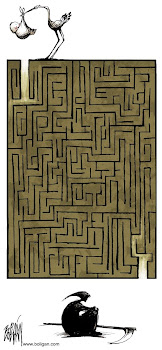Did you know that the stringy bits of a banana had a name?
Yes, they do.
Phloem
It’s not just bananas, but present in most plants; it’s just that in bananas they are so damned annoying.
Just another interesting fact of life bought to you by a blogger with nothing better to do than take phloem photos on a Friday morning. BTW, the banana was delicious after I had removed the stringy bits. Don’t you just hate them?
This morning at 3:something a.m. I was browsing blogs that I follow. One blog had a post with three BBC headlines, the first two terrible news, the third, however may seem terrible to you, but to me wasn’t.
Bolivia lowers working age to ten
Now the world is trying to stamp out child labour, and this headline is the exact opposite. To those of us in the ‘developed’ world, that seems terrible, but having travelled throughout, worked as a tour guide and lived and loved on and off in Bolivia, it’s sensible.
Meet Feliciano, he was seven at the time, and the head of the family.
Sorry, the photos are terrible, they were scanned off negatives that have been abused up and down the Andes, in the heat of the jungles and bounced along dusty roads around South America.
Feliciano and his cousins Sandro, 10 and Juan Carlos, 8 all worked as shoe shine boys in the main plaza in Santa Cruz de la Sierra. You could get your shoes shone brilliantly for B$1 (boliviano or peso) which at the time was about 30 cents US.

Feliciano at work, the flourish of the brush in the air, he was quite a craftsman and a bit of a comedian
You could find him and cousins in the plaza as early as 6am they worked through the day playing cat & mouse with the municipal wardens to avoid having their tools confiscated and evicted from the plaza. The day often ended at midnight.
Sometimes, when in the plaza for my early morning coffee, I would find them.
When they woke, I would buy them a salteña (like a pie) and they would start the long day all over again and maybe go home the next night, maybe not. He worked seven days, sometimes he took a day off and spent it playing at the nearby Rio Piray, but he would have his kit and ply his trade around the many cabañas as well.
What he took home was the family wage.
This is the reality in Bolivia and the new law provides some protection.
The last time I saw Feliciano was in 2000, he was 10 and still working.
Not only Feli, but beggars, windscreen washers, food sellers as well.
In Bolivia, the poorest country in South America, everybody has to pitch in.
It’s a matter of survival and they don’t have the luxury of not working.
They lead a hard and difficult life, quite unimaginable to us in the western world where we are insulated from these harsh realities and condemn them without knowing the real story.
I can relate similar stories from Peru where I lived in five places.
This is why I have always said, that it wasn’t until I began to travel, that I learned to appreciate the world, both just and unjust.
Sunny day, I have class at 5:30, there is lunch in the fridge today and as it’s after noon, I should be cooking along;
Later.




























Nah, I’m so tough, the phloem can’t bother me.
It’s eye-opening to hear the other side of the story about children working in poverty stricken countries.
LikeLike
>Yvonne, but it’s bitter…
Thanks for the comment about Feli’s story, it is real, and it is strange to us in the western world who just can’t imagine real poverty.
BTW, his name Feliciano means ‘the happy one’. I never heard him complain about his lot.
AV
LikeLike
Good grief, and we whine about the most inane things, eh? Like “I just broke a finger nail”, for example!
LikeLike
It makes the things we worry about pale into insignificance…
AV
LikeLike
I understand the need to work very well, AV. It is the same in the sub-continent. We used to have endless moral arguments in the bank about what we would and would not finance if child labour were involved. You may think it odd but sometimes I supported it. It was case by case. By problem is that in this day and age I find it hard to get my head around the fact that kids need to work when so much is squandered in the ‘developed’ world. There are far too many small children being the family breadwinner. Its a fact. Its necessary. But it is still scandalous.
LikeLiked by 1 person
>Andrew, your comment is very interesting. I must point out that the new law in Bolivia is for ‘self-employed’ kids, not for factory labour. It is not giving carte blanc to unscrupulous employers.
I never considered Feli’s need to work as scandalous, just reality.
AV
LikeLiked by 1 person
I’m so greedy that I eat the banana phloem and all. The point that you make about children working is a sobering one. I still struggle getting my head around it but I understand that in many cases there is not an option. The thing that upsets me more than anything, is enforced child-labour. Many of the big name brands for electronics, clothing and shoes have a horrific track record of using child labour and appalling working conditions. If through these new laws Bolivia can protect its children then it is a step in the right direction.
LikeLike
>Lottie, I meticulously ick each bit off… Enforced child labour is another tory to what I wrote about and the new law covers. I am totally against these child sweatshops.
AV
LikeLike
All plants have phloem tubes. You can think of the phloem as the blood vessels of a plant. They are always located on the outer layer of the plant. For a tree it is just inside the bark. This is why if a tree is constantly hit with a weedwacker around is base, and damaged enough (gridled – 100% damage around), which only is about a half an inch (1 cm) into the bark, a 20″tree can be killed in a month. We use this technique to kill undesirable trees in a forest. You only need a wire saw and a bit of muscle.
Re: kids working… As along as is not forced labor, go for it. I loved working as a kid. I had a lemonade stand outside of an unairconditioned church. I made at least $20 in one day. I wasn’t supporting my family, just my record album addiction!
LikeLike
MWPG, I said most, I wasn’t sure of my ground to say al; so I’ll take your word for it.
We worked as kids. We chopped kindling wood and solsd bags around the heighbourhood. Nothing wrong with kids working of their own accord.
AV
LikeLike